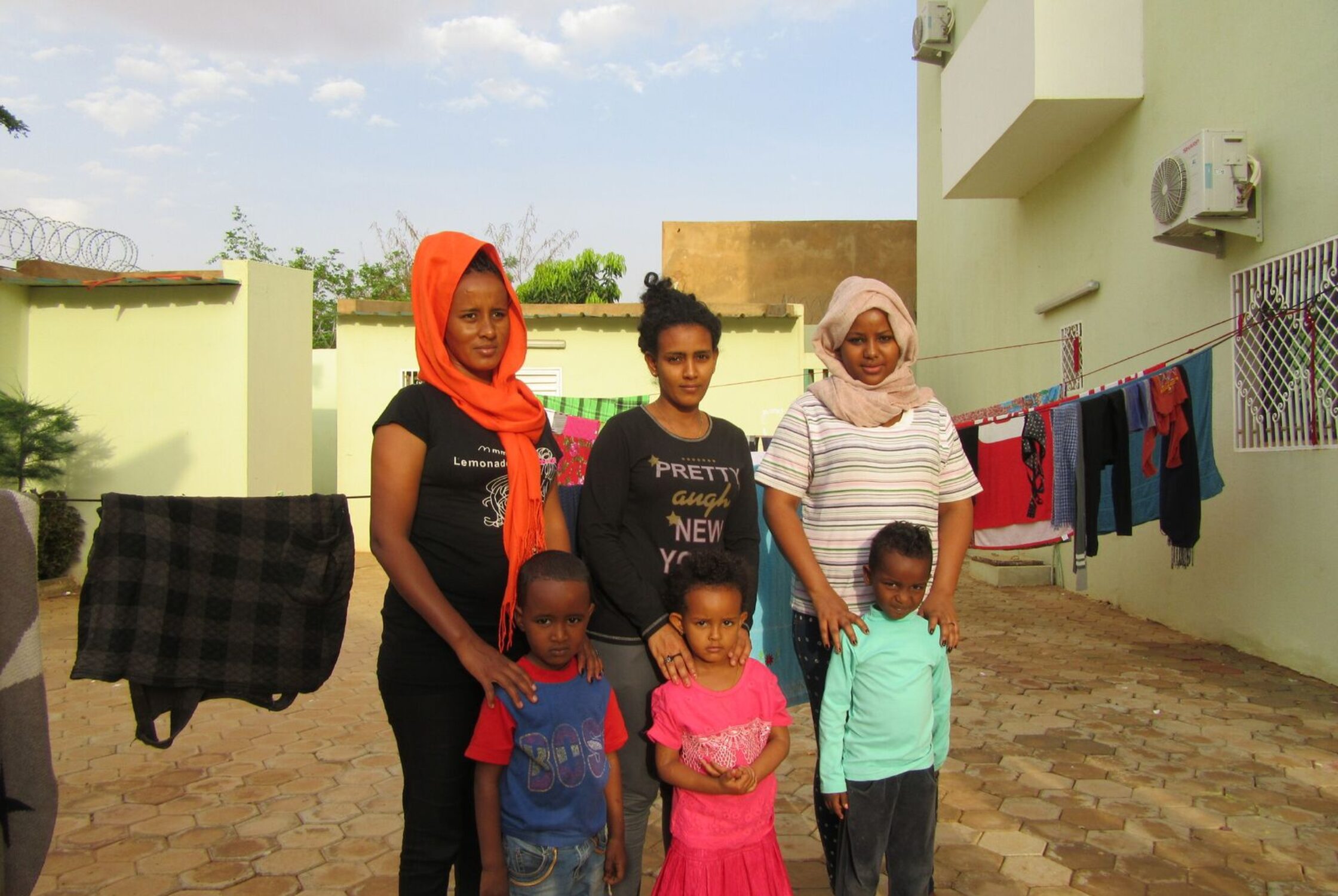For Refugees in Niger, Relief at Being Rescued from Libya and Fear for Those Left Behind

“I keep pinching myself – did I really leave Libya? Am I in Niger?” Amal*, a 25-year-old young woman from Somalia asked on a hot afternoon in Niamey as we sat together last week. Amal is one of some 900 refugees who have been evacuated from Libya since last December by the UN Refugee Agency (UNHCR) under an emergency program. That program was established in cooperation with the Government of Niger and in response to the appalling conditions in which refugees are being held in Libya. They are to stay in Niger only temporarily as European states and hopefully other countries process their cases for resettlement, a process that cannot take place inside Libya given the current security situation and dire conditions.
Amal introduced me to her baby daughter and told me about her harrowing journey through Libya. She traveled with her cousin, Samar, who left Somalia because the terrorist group Al-Shabab had threatened her. In a town in southern Libya, Samar needed to see a doctor so Amal accompanied her to a local hospital. At the time, Amal was one and half months pregnant. At the hospital, police asked them where they were from and what they were doing in Libya. Amal and Samar said they were from Somalia and going to Europe. The police then placed them in detention in a place the women described as a prison, in a room underground. The room was so small that they could not lie down and had to take turns sleeping.
“For five months, we didn’t see the sun, the sky or breathe air,” Amal told me. She said she and Samar were transferred to a detention center in Tripoli where they were beaten and eventually moved again to another detention center in the city. Under such conditions, it is a miracle Amal’s baby survived. When Amal gave birth to her daughter, she was released to the hospital only for brief periods. “I went to hospital on a Wednesday,” she said. “I gave birth on Thursday. On Saturday, I went back to the detention center.” She and her newborn were held in a room with 53 other people, including other babies and children. “At night, they brought us a bucket. You couldn’t go to the toilet.”
Amal, her baby daughter, and Samar were evacuated by UNHCR to Niger where they are awaiting resettlement to another country. “We got out, thank God,” Amal said. She wants to work to support her daughter. Samar wants to train to be a doctor.
“At a time when the world’s richest nations are closing their doors to people fleeing conflict and persecution, Niger has agreed to host refugees evacuated from Libya under UNHCR’s emergency program.”
At a time when the world’s richest nations are closing their doors to people fleeing conflict and persecution, Niger has agreed to host refugees evacuated from Libya under UNHCR’s emergency program. In Niamey, I met with dozens of other women, men, and children from Eritrea, Ethiopia, Sudan, Somalia, and South Sudan who fled their countries in the face of violence and human rights violations. They described unimaginable abuses at the hands of smugglers and human traffickers and in official detention centers in Libya as they tried to reach safety in Europe. They were subjected to rape, torture, forced labor, food deprivation, unclean drinking water, and holding cells housing dozens or even hundreds of others detainees. Many refugees from Eritrea and Ethiopia said guards and smugglers tore their crosses from around their necks and insulted them for being Christians.
The people I met in Niger are safe now. They are grateful to have been rescued from the horrors they suffered in Libya. But many said they worry about those they left behind.
At the end of the day, EU member states and other wealthy countries must offer resettlement opportunities for these refugees if the evacuation system is to work. They must do so with the urgency and generosity that the conditions facing refugees in Libya demand.
The people with whom I met have hopes for better lives – to study and work in Europe, Canada, the United States or Australia. Their greatest wish is to live in a place where they are safe and free. European and other governments must not let them down.